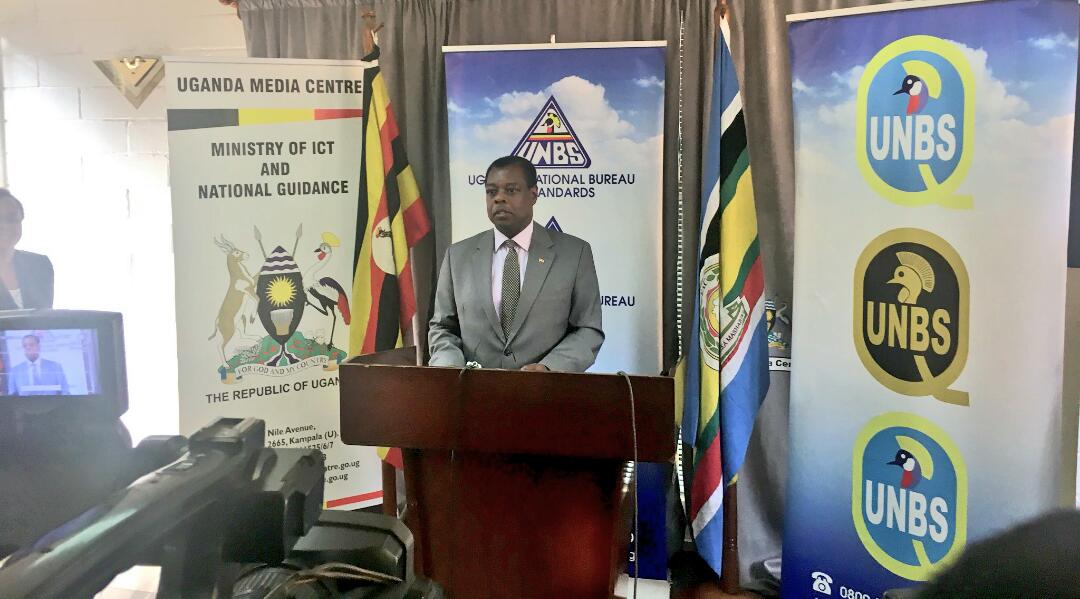The Uganda National Bureau Standards (UNBS) will effective this financial year make its distinctive mark (Q mark) compulsory for all products that fall under mandatory certification.
This was revealed by the UNBS Executive Director, Dr Ben Manyindo on Tuesday while addressing journalists at the Uganda Media Centre.
UNBS operates a Product Quality Certification Scheme, as one of the services to the manufacturing sector. Under this scheme, UNBS certifies the quality of a product and grants the manufacturer a permit to affix the UNBS Quality Mark either on the product itself or on the packaging. This mark gives an assurance to the customer that the product conforms to Uganda Standards and is of good quality.
Previously, the Q (quality) mark, which is often awarded on brands that meet UNBS standards has been voluntarily given. But Manyindo says that the standards regulator has come up with new regulations, the Use Distinctive Mark Regulations 2018.
Under these new regulations, all products that are covered by compulsory standards must be certified with the UNBS Q mark before they are allowed on the market. According to Dr Manyindo, a total of 1,350 products have mandatory standards. Particular standards are deemed mandatory if they are of safety concern for the consumers and the environment.
“This is part of our efforts to promote competitiveness on the local products in regional and international markets and support the BUBU [Buy Uganda Build Uganda] policy,” Dr Manyindo said.
He added that the new requirement will also safeguard public health, safety, and the environment from products that do meet standards.
He said that the implementation will be undertaken on a sector by sector basis beginning with selected priority sectors such as juices, beverages, cosmetics, steel products, cement, confectioneries, apiary and mattresses among others.
“If you are producing a pen and there is a Ugandan standard that applies to it which is mandatory, you must register with UNBS,” he said.
Upon registration, UNBS will then check the manufacturer of a particular product, assess their processes and guide them on requirements for them to acquire the Q mark.
He said that UNBS is partnering with District Commercial Officers to ease the enforcement of the new regulations, as well as encouraging manufacturers to join associations and groups.
“We are not going to start enforcing this immediately, however, if you refuse to register, that’s different story because you will not be allowed to operate,” Dr Manyindo said.
Dr Manyindo revealed that in the concluded 2017/18 financial year, UNBS inspected a total of 2,278 outlets and that 413 metric tonnes of goods (considered sub standard) worth Shs 3.5 billion were seized.
The goods that were seized in the operations included electronics, steel products, iron sheets, food stuffs, toilet paper, agro-inputs, cooking oil, second hand tyres, beers, paints, cereals among others.
Meanwhile, last year, UNBS developed a total of 254 new national standards out of which 76 are compulsory (mandatory). The newly developed standards were in the areas of food and agriculture (43), management and services (48), chemicals and consumer products (111) and engineering (52).








